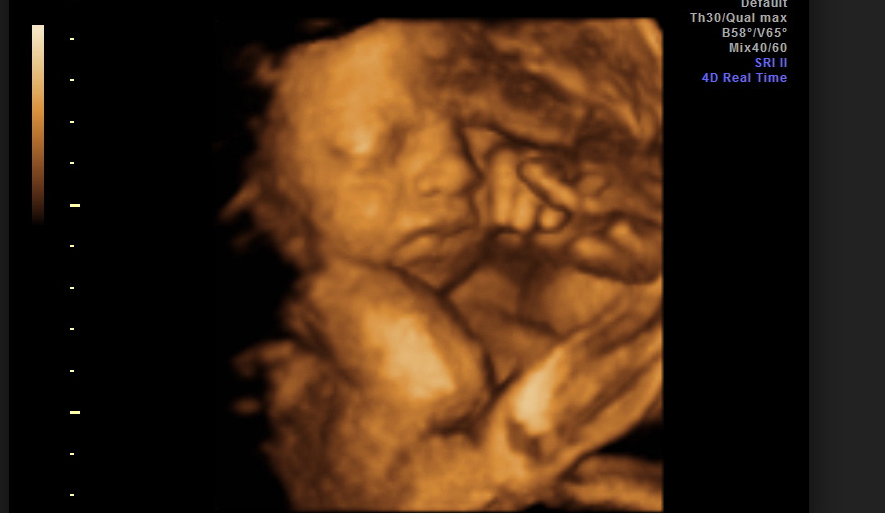Tennessee lawmakers began a two-day hearing Monday on a controversial pro-life bill to ban abortions after an unborn baby’s heartbeat is detectable.
ABC News 9 reports the state Senate Judiciary Committee hearing was crowded with pro-life advocates and abortion activists as experts testified about the bill.
Similar to laws being challenged in Arkansas, Georgia, Kentucky, Louisiana, Mississippi and Ohio, state Senate Bill 1236/House Bill 77 would ban abortions after an unborn baby’s heartbeat is detectable, about six weeks of pregnancy. It would allow exceptions for rape, incest and threats to the mother’s life.
However, some state lawmakers want the bill to go even further. A newly proposed amendment would ban all abortions in the state by recognizing unborn babies as persons under the Fourteenth Amendment.
Local resident Matthew Nowlin told the news outlet that they want the state to protect babies’ lives.
“This is not about a woman’s body,” Nowlin said. “If it were about a woman’s body we would support the right to do what they want.”
But abortion activists with Planned Parenthood slammed the bill as “dangerous,” according to the local news.
“It’s unconstitutional and it’s dangerous for women,” said Ashley Coffield, CEO of Planned Parenthood in Tennessee and northern Mississippi. “They don’t want to set up the state taxpayers to have to defend something that the courts are immediately going to strike down.”
Strategy appears to be the main controversy in the Republican-controlled state legislature. While all pro-life advocates want unborn babies to be protected, some expressed concerns that the legislation will be overturned in court, no unborn babies’ lives will be saved and state taxpayers will be forced to reimburse pro-abortion groups’ legal fees.
SUPPORT LIFENEWS! If you like this pro-life article, please help LifeNews.com with a donation!
Nashville Public Radio reports:
Jim Bopp, the general counsel of anti-abortion group National Right to Life Committee, called the new proposal irrational.
Bopp said that, if challenged, the bill is more than likely to fail in court.
“It’s not a matter of whether these judges are pro-life. It’s the reality that they have an obligation to follow precedent,” Bopp told senators during his testimony. “And there’s simply no question that pre-viability prohibitions are unconstitutional. No questions.”
Bopp has successfully defended other cases in front of the U.S. Supreme Court. His statement is a testament to what abortion opponents, including top Republicans, are struggling with: trying to find a balance between restricting the procedure, without the restriction being deemed unconstitutional.
Senate Judiciary Committee Chair Mike Bell also expressed uncertainties because of the likelihood of losing in court, according to the report.
These legal losses have consequences beyond the continued destruction of unborn babies’ lives. They also can put more money in the pockets of the abortion industry. In 2017, for example, Missouri taxpayers were forced to pay Planned Parenthood’s lawyers $156,000 after the state lost a lawsuit to an abortion facility that did not comply with the state admitting privileges law. And in 2016, North Dakotans were forced to pay $245,000 to pro-abortion lawyers after a court struck down its heartbeat law.
Some pro-lifers have renewed hope that the new conservative-majority U.S. Supreme Court will uphold an abortion ban and overturn Roe v. Wade. Others, however, are hesitant because of concerns about losing the court battle.
Though a majority of the Supreme Court justices were appointed by Republican presidents, they seem hesitant to accept abortion cases. Earlier this year, the high court rejected several pro-life cases that would have upheld moderate abortion restrictions. While Roe v. Wade stands, states are prohibited from doing much to protect the unborn.
In May, Tennessee lawmakers passed a law banning abortions and ensuring that unborn babies will be protected when Roe v. Wade is overturned. Tennessee Right to Life, the oldest and largest pro-life group in the state, praised the law as a step toward restoring “the fullest possible protection to the largest number of unborn children and women in our state.”

Please click here to read the full story.
Author: Micaiah Bilger




